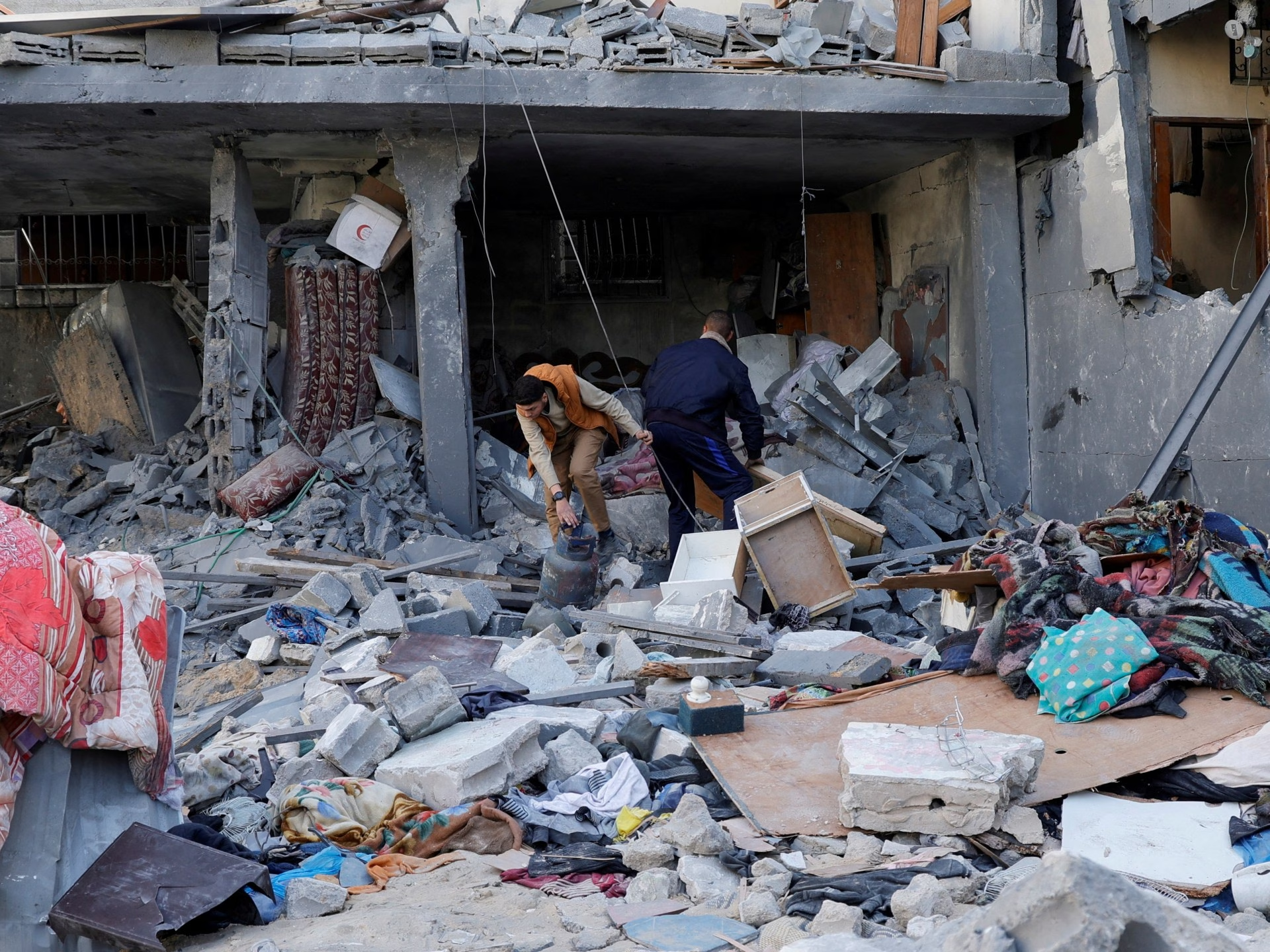Recent forced evacuation orders in Rafah, southern Gaza, as Israel intensifies military operation after breaking the ceasefire.
Avichay Adraee, the military’s Arabic language spokesperson, announced on X on Monday morning that the army is intensifying its operations in Rafah, one of Gaza’s largest cities.
He urged Palestinians to seek shelter in al-Mawasi on the coast, an area designated as a “safe zone” despite frequent Israeli attacks during the ongoing conflict in Gaza.
Following the evacuation order, Al Jazeera Arabic reported at least two fatalities resulting from an Israeli attack on a tent housing displaced individuals in the area.
Last week, the United Nations humanitarian agency (OCHA) reported that over 142,000 people have been displaced since Israel resumed its military campaign in Gaza on March 18, after breaking the fragile January ceasefire.
Gaza’s Ministry of Health has confirmed that more than 900 people have been killed since the recent resumption of bombing, bringing the total death toll since the war began in October 2023 to over 50,000.
The October 7 Hamas attack on southern Gaza resulted in the deaths of 1,139 individuals, with approximately 250 taken captive, leading to the Israeli onslaught.
Dire Eid Celebrations
Israeli attacks persist in Gaza as Palestinians mark Eid al-Fitr, a three-day holiday concluding the Muslim holy month of Ramadan.
On the first day of Eid, Sunday, at least 64 Palestinians were killed. By Monday morning, the situation in Gaza remained dire, with at least nine additional fatalities from Israeli attacks.
From Deir el-Balah in central Gaza, Al Jazeera’s Hind Khoudary reported that Israeli forces have targeted at least seven houses belonging to different families in Khan Younis, the other main city in southern Gaza.
In addition to continuous artillery shelling in central areas of the Gaza Strip, including Nuseirat and close to the Netzarim Corridor, explosions were heard in Deir el-Balah, resulting in the deaths of three farmers.
In Beit Hanoon, northern Gaza, children, who typically celebrate Eid with joy, now experience fear and uncertainty during the holiday.
“We’re too afraid to go near the beach for fear of Israeli shelling,” Wissam Nassar shared with Al Jazeera.
Hussein Alkafarna added, “There’s no joy this Eid. We can’t even afford new clothes amidst the constant fear we live under.”







